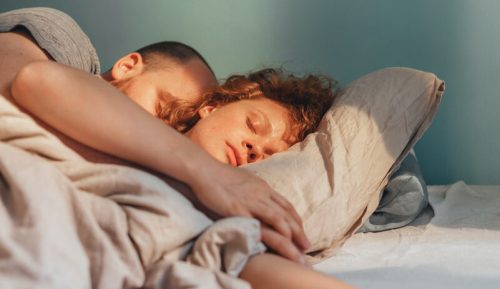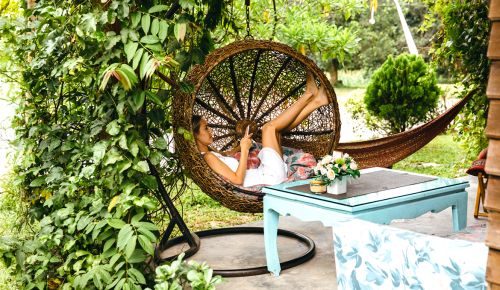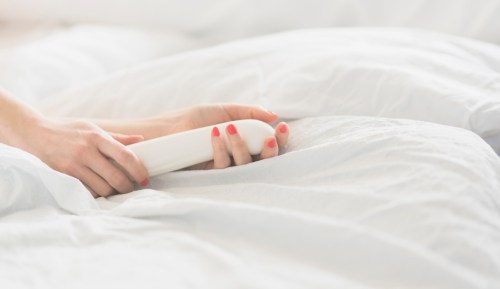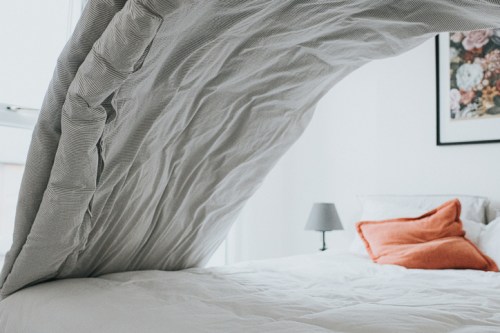Our editors independently select these products. Making a purchase through our links may earn Well+Good a commission
In an effort to wake up on the right side of the bed this year, we’re taking a look back at all of the sleep tips from experts we gleaned in 2022. It’s worth the retrospection since we spend nearly one-third of our lifetimes either sleeping or attempting to sleep, according to sleep studies.
Experts in This Article
scientist and the founder of Dr. Weiss Sleep Education
board-certified behavioral sleep medicine specialist, sleep expert at Hatch, and author of Hello Sleep
program director at Stretch*d
sleep expert and clinical psychologist
sleep expert and director of the Sleep and Health Research Program at the University of Arizona
assistant professor in medicine at Harvard Medical School and associate scientist at the Brigham and Women’s Hospital
sleep expert and senior behavioral and social scientist at RAND Corporation
For some of us, the extreme highs and lows of 2022 resulted in more of the latter than the former—on its most recent National Health Interview Survey, the Centers for Disease Control (CDC) reported that nearly 15 percent of adults have a hard time falling asleep most nights. While we all understand the importance of getting enough good quality zzzs, major life changes and external stressors (hello, ongoing pandemic and pending recession) can make that more difficult.
Consider this your sign to take your sleep quality seriously in 2023—and maybe even incorporate more wellness into the foundation of your home. According to sleep expert Michael Grandner, PhD, “poor sleep quality can get in the way of optimal emotion regulation, stress reduction, and even managing and organizing our lives. On average, people who sleep better are more likely to have a positive outlook on life.”
Good sleep has the power to improve our emotional and mental health, boost our moods, and create a more positive outlook on life. In tandem, these improvements tend to seep into other areas of our lives, including our relationships and our careers.
Sleep tips from experts we’re won’t go to bed without
Which drinks can help you fall asleep
Chamomile, green tea, tart cherry juice, and water are all heralded by sleep expert Wendy Troxel, PhD, for their sleep-inducing benefits. The melatonin hormone content in cherry juice can help regulate sleep-wake cycles, while the L-Theanine amino acid found in green tea promotes relaxation. Chamomile has long been studied for its natural anxiety-reducing effects, says Troxel, and drinking plenty of water throughout the day can prevent sleep-interrupting trips to the bathroom.
Alternatively, coffee, alcohol, and caffeinated sodas will keep you awake longer, says Dr. Troxel. For better sleep, avoid drinking these a few hours before bedtime.
What to do if anxiety is keeping you awake
Sleep anxiety occurs when we stress about insomnia, creating a cycle of sleep deprivation. If anxiety is keeping you from getting some shuteye, retrace your steps to try and find its source. Until that root issue is taken care of, truly restful sleep may evade you. Limiting your exposure to blue light, creating a relaxing environment, maintaining a strong sleep schedule, and meditation can all help soothe this bedtime anxiety.
If you’re riled up about something happening the next day, try cutting off your event preparation time one hour before bed and sticking to your usual bedtime routine, says sleep psychologist Jade Wu, PhD. If you still find yourself stressing about tomorrow, understand that a case of the nighttime jitters is typical; fighting it can make it even more difficult to fall asleep. “Even if you’re well-prepped, your brain is naturally going to be on overdrive at least a little,” sleep doctor Michael Breus, PhD, previously told Well+Good. “And this is totally normal behavior.”
Expert-approved mental hacks to help you fall asleep in a pinch
So, you’ve fluffed your pillows, turned off your phone, and drank cherry juice, but despite the aforementioned sleep tips, your mind is still racing—now what? Try quieting your busy brain with some expert-recommended mental tricks.
If you’re up late worrying, try carving out a specific period of time outside of your bedroom to focus on your concerns. “The practice of writing your worries down on paper can significantly improve your ability to relax and ease off to sleep,” sleep expert Rebecca Robbins, PhD, previously told Well+Good. If the worry in question is not getting enough sleep, try using paradoxical intention to “forget” the mounting pressure of insomnia, or cognitive shuffling to occupy your mind.
Exactly how to buy a great mattress online
If you find yourself tossing and turning, sometimes a too-old mattress is to blame. Thanks to the internet, we can buy nearly anything online—including furniture—with the click of a button. Purchasing a mattress online can be tricky, especially if you haven’t had an opportunity to try it out in person. Thankfully, many quality mattress brands, like Layla, allow you to try out their beds for a period of time before you make a final decision.
This test period will ensure you get the support your body needs, says Jeff Brannigan, director of programming at Stretch*d. “If you have a mattress that doesn’t suit your body, you’ll pay for it physically,” he previously told Well+Good.
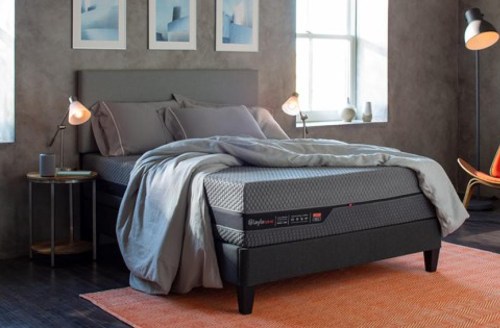
Layla Hybrid Mattress — $1,500.00
How the Scandinavian Sleep Method can improve your sleeping habits—and your relationship
Cuddling up with your partner for bed is lovely, but sometimes, one comforter just isn’t enough. If you find yourself constantly battling your boo for your share of the comforter, consider adding a second one.
Well+Good writer Alexa Cassanova tried the Scandinavian Sleep Method with her husband, doubling their comforter count. This handy sleep tip gave them the ability to wrap up and wriggle around all night without disturbing each other. Another bonus, Casanova writes, is the temperature control. Since each partner gets their own blanket and can hog the covers all they want, no one’s left overheated or chilly. Score!
One thing to note is that two queen or king comforters might be too much blanket to handle: if you try (and love) the Scandinavian Sleep Method, consider a twin comforter set instead.

Buffy, Twin Breeze Comforter — $169.00
Build an afternoon routine for better rest
Preparation for a great night’s sleep should start long before you reach for your pajamas. According to sleep experts, getting plenty of natural daylight and exercise before the sun sets can be particularly helpful for fixing a disrupted sleep pattern. A lack of sunlight can, in turn, trigger an overproduction of melatonin, making you sleepier throughout the day. And a lack of exercise can mean less of the slow-wave sleep our body needs to repair itself.
For even better sleep, avoid caffeinated beverages in the afternoon and resist the urge to lounge on your bed after work. “We tell patients that the bed is for sleep and for sex,” sleep specialist Carleara Weiss, PhD, previously told Well+Good. “Everything else needs to be outside of the bed.”
Sign up for the Well+Good SHOP Newsletter
Get exclusive deals on wellness, beauty, fitness, and food products that have been hand-picked by our editors.
Got it, you've been added to our email list.
